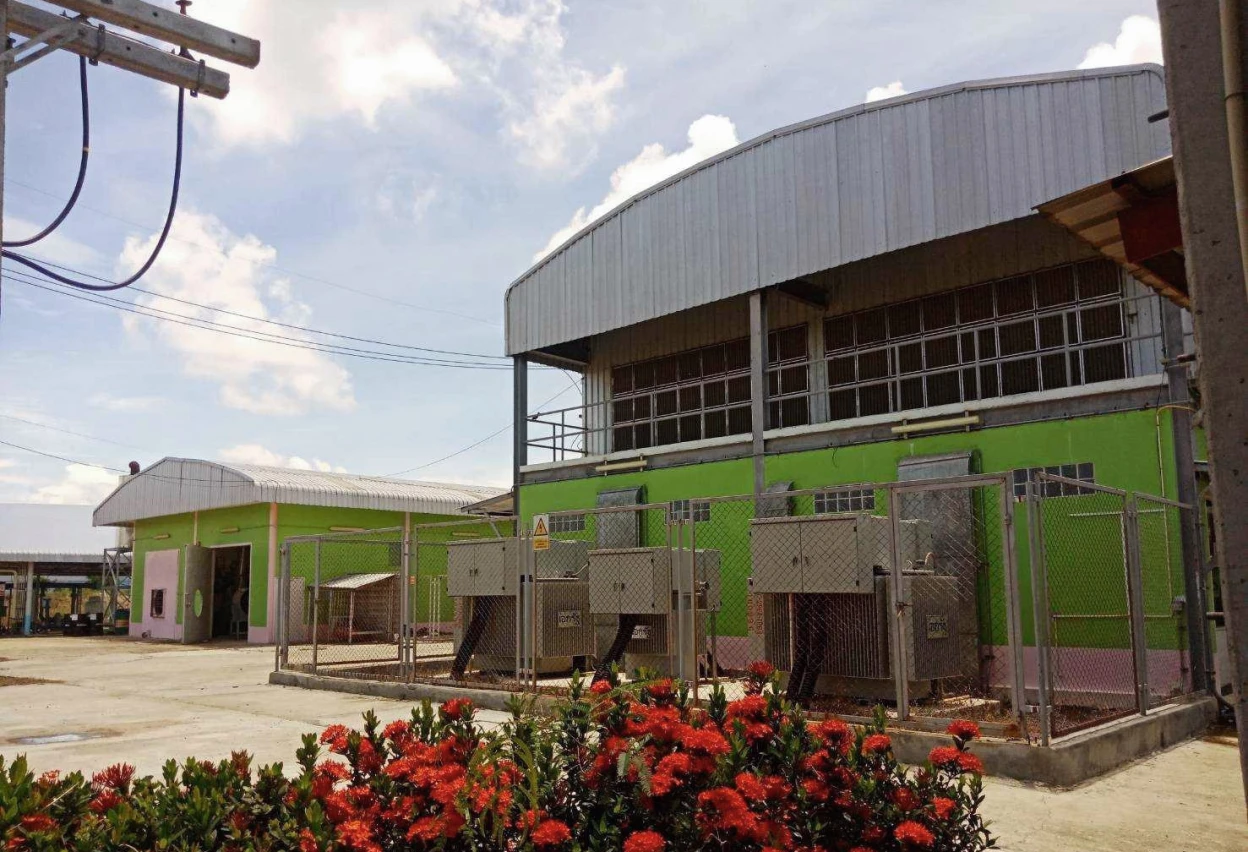Wangdee Biogas Power Plant (THA)
Biogas plant delivers 4.27 MW of costeffective power while also solving the facility’s waste management issues

»This project evolved beyond our initial high expectations, and we are very pleased with the results. The high reliability and performance delivered
by the first Jenbacher engine at our biogas plant, along with the excellent installation and service support provided by Souer, encouraged us to
add additional J320 units. Now, we are no longer reliant on electricity from the grid and heat from crude oil to run the cassava processing plant. And, the Jenbacher systems have allowed us to put our waste byproducts to use to meet our power needs.«
Mr. Phonchai Wangkunworakit, managing director, Wangdee Energy
Background
In Thailand’s Kamphaeng Phet province, the New Diamond Starch Co., Ltd., processes raw cassava roots to produce about 350 tons of tapioca starch per day. Because the energy-intensive process produces wastewater and solid waste as byproducts, the company began looking for ways to put that waste to use to generate more environmentally friendly electricity and heat. A subsidiary of the New Diamond Starch Group, Wangdee Energy was tasked with finding an energy solution that could reduce the processing facility’s reliance on electricity from the grid and offer a more sustainable solution than the use of crude oil to generate heat for cassava processing. The solution also needed to address waste-related issues such as combatting the unpleasant odors associated with an open wastewater treatment system and eliminating the need to pay to dispose of solid waste surplus that could not be sold.
Solution
Wangdee Energy turned to Souer Co., Ltd.—INNIO Group’s affiliate in Thailand—for a solution that has progressed over time. The Wangdee biogas power plant is centered on three Jenbacher J320 engines. The first 1.1 MW unit, successfully installed in 2015, initially used wastewater to generate electricity that was sold to the grid. It also burned some biogas to supply heat for cassava processing, eliminating the need to use crude oil. Based on the success of the first phase of the project, Wangdee added two more J320 units in 2021, convinced by the reliability and performance of the Jenbacher system.
Results
The biogas power plant delivers 3.2 MW of output—more than enough to supply all electricity needed for the processing plant. What’s more, the engines use all of the facility’s wastewater and solid waste. The highly reliable onsite power production solution brings much lower energy costs to the processing plant by eliminating its need to buy electricity from the grid and crude oil for heat. The facility also now can earn extra profits by selling excess power back to the local grid.
Customer benefits
The Jenbacher J320 engines offer numerous advantages:
- Proven performance operating on a regenerative energy source – biogas
- High availability compared to other solutions
- Sustainable, highly reliable onsite power production
- Lower energy costs
- Grid independency and the ability to sell excess power to the local grid
- Service team with fast response for spare parts and repairs as needed
Location
Installed engines
Electrical output
Electrical efficiency
Energy source
Commissioned
Our dedicated Jenbacher experts are available to provide personal consultation.
Media